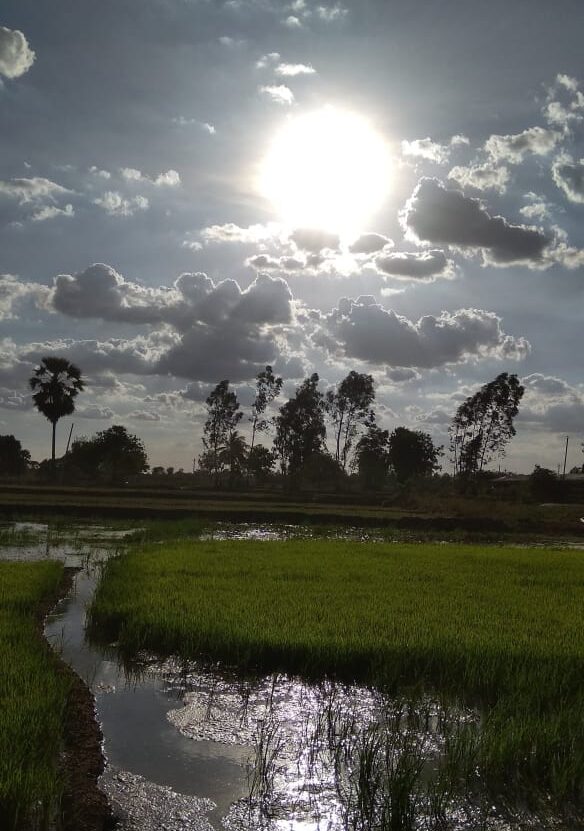May 1st 2022 marked a special moment for all of us in The Ecopreneur community. May Day commemorates the efforts and victories of workers everywhere. As ecopreneurs, we join their ranks to improve the lives of our community and planet.
Who is an ‘Ecopreneur’? An ecopreneur is a person who invests in interventions, innovations and incorporations that reconnect people with nature. Our youth are coming up with approaches to reconnect people with nature, achieving the various climate goals. In India and around the world, our ecopreneurs are stepping into the limelight as they are working to protect and save nature in the 21st century.
May is the hottest month, especially here in the Indian subcontinent. India’s meteorological department issued several yellow alerts on heat waves in April. It was recorded as one of the hottest April in the last few decades. And then it began in May. The Indian Medical Associations (IMA ) is advising people to take necessary heat wave precautions to avoid heat stroke and health related problems.
Extreme heat waves in the age of climate change are a brutal reality. Usually the evaporation of moisture from soil and transpiration from trees plays a crucial role in impacting our summer temperatures. However, in cities, the lack of green cover and concrete constructions restrict natural evaporation and transpiration processes. So most of the sun’s radiation scorches the air and it gets warmer. And then, there is air pollution too. Due to convection, a process where hot air moves pollutants from ground to high altitudes and there it impacts the ozone layer.
A chain of events impacts the earth as this heat causes the top soil depletion too. Soil erosion leads to the eradication of topmost soil nutrients like N, P, K, Mg (Nitrogen, Phosphor, Potash, Magnesium) leading to soil infertility.


As the eroded soil is devoid of major nutrients, the crops face severe stress which in turn demands external supplement in the form of fertilisers,which are a burden to the farmers. Fertiliser production is an intense process which emits huge quantities of greenhouse gases further damaging our ozone layer. When crops are harvested, they in turn, affect the health of human populations causing effects like bone deformation,weakness, anaemia and many more health conditions.
The Global Nutrition Reports observes that India already faces nutritional challenges in the form of stunting, anaemia and obesity. According to the Indian Council of Medical Research (ICMR) and National Institute of Nutrition (NIN), a daily plate for Indians should ensure diet diversity. However, post green revolution, diet diversity is mostly replaced with carbohydrate rich crops like wheat and rice. The paradigm shift in the diversity of food is posing a threat for the crop diversity of our ecosystems. Let’s face it. Mono crop farming is a challenge to our planet’s biodiversity.
Is the news all bad? Certainly not! Here is the good news. When it comes to achieving greater climate goals, collective actions of people, policies and passion are leading the way. Since 2006, The Mahatma Gandhi National Rural Employment Guarantee scheme has created almost 30 million ecological assets in India. Probably, these 30 million ecological assets might have captured thousands of metric tons of topsoil from erosion; and saved water and improved ground water levels. This is one of the finest examples of how collective actions bring qualitative outcomes rather than investing in massive oral campaigns.
May 22nd 2022 is a day of significance for all of us. Every year on May 22, we observe The International Day for Biological Diversity dedicated to increasing understanding and awareness of biodiversity issues. This year–on May 22nd, 2022– let us commemorate this year’s slogan: “Building a shared future for all life” with initiatives that benefit our planet.
Let’s begin with the bees in our community. Bees play an important role in pollination among plants and crops to maintain biodiversity. Every year, May 20 is celebrated as the International Bees Day to acknowledge the role of bees in the ecosystem. India is the world’s sixth major natural honey exporting country and the Indian apiculture market size is expected to reach a value of Rs. 33,128 million/ USD 4.3 Billion USD by 2024.
According to the Food and Agriculture Organization of the United Nations (FAO), Coffee, apples, almonds, tomatoes and cocoa are all on the list of crops that depend on the work of nature’s pollinators. Let’s support our ecosystems by supporting bees wherever we are.

As per the IUCN data, India accounts for 7-8% of all recorded species which includes 45,000 species of plants and 91,000 species of animals with only 2.4% of the world’s land area. The month of May 2022 has another significant international environmental event, Endangered Species Day is observed each year on 20th May, 2022. However, “of the close to 5,500 mammals assessed by the International Union for Nature Conservation (IUCN), 22.2% are extinct or globally threatened. 1,141 species of these are ‘threatened’. We must act now.
In closing, tackling climate change is an economic opportunity for countries.
According to the Global Commission on the Climate and Economy report, tackling climate change is a USD 26 trillion-dollar economic opportunity. Tackling new generation challenges leads to new generation opportunities.
All countries should ensure these economic opportunities are decentralized to empower communities. This will ensure two benefits: the creation of millions of job opportunities and a solution for the climate change that confronts us everywhere.
In May 2022, let’s do our bit to become part of Green Recovery!
Photo courtesy: @srikanthreddy





